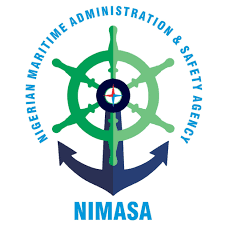FG delays AFCFTA agreement commencement over Rules of Origin criteria
By Seun Ibiyemi
Barely six months after the expected commencement of the implementation of the African Continental Free Trade Area (AfCFTA) agreement on the continent, issues with Rules of Origin criteria, amongst others is still delaying the implementation of the agreement among African countries.
This is even as findings revealed that the agreement ratification is currently at 81 per cent stage.
Recall that following its conceptualization in 2018 based on the huge market size of the African continent, AfCFTA was expected to commence on the 1st of January, 2021 among member countries.
However, responding to enquiries on why the agreement is not yet being implemented by the Nigeria Customs Service (NCS) on goods coming in or going out from/to fellow African countries, the Spokesman of the NCS, Joseph Attah explained that trade leaders in all African countries are still meeting to finalise the rules of origin criteria.
According to the NCS Spokesman, “The list of Nigeria Tariff offers has been communicated to NCS from the national office for trade negotiation and ECOWAS.
“We have started the reconfiguration of the system to capture the AFCFTA procedures. However, senior trade officials comprising of trade leaders in all African countries are still meeting to finalise the Rules of Origin criteria.
“Trade in AFCFTA will start after the crucial criteria is completed. Currently, it is at 81 per cent stage.”
When pressed further to explain what he meant by Rules of Origin criteria, the NCS Spokesman explained that “Rules of Origin criteria will guide against a situation where one African country will be short-changing another African country under the guise of AfCFTA agreement.
“Let me break it down for you. AfCFTA is an agreement between all African countries. Now if Nigeria and another African country, country A, decides to exchange goods based on that agreement, one country must not short-change the other.
“If Nigeria and country A exchange goods based on AfCFTA, such goods will enjoy basic exemptions tied to the AfCFTA agreement. However, such traded goods must originate from the two countries that have such agreement, that is Nigeria and country A.
“In a case where country A that Nigeria has an agreement with over a traded well does not have such goods at that time and decides to go to country B to bring in those goods, repackage them as if they were produced in country A; and then exchanges them with Nigeria under AfCFTA agreement, then country A has short-changed Nigeria.
“Those are the knotty issues that are being ironed out by all the trade representatives in the African continent to avoid a situation where one country will be short-changing another under the guise of AfCFTA Trade agreement.
“For now, they are at 81 per cent stage of ratification, according to our trade representative who briefed me on development.”
Also speaking on the Rules of Origin criteria, Principal Consultant, International Trade Advisory Services Limited, Mr Okey Ibeke explained that Rules of origin are the criteria needed to determine the national source of a product.
“Their importance is derived from the fact that duties and restrictions in several cases depend upon the source of imports.
“There is wide variation in the practice of governments with regard to the Rules of Origin. While the requirement of substantial transformation is universally recognized, some governments apply the criterion of change of tariff classification, others the ad valorem percentage criterion and yet others the criterion of manufacturing or processing operation.
“In a globalizing world, it has become even more important than a degree of harmonization is achieved in these practices of members in implementing such a requirement.
“Rules of Origin are used to implement measures and instruments of commercial policy such as anti-dumping duties and safeguard measures.
“They are also used to determine whether imported products shall receive most-favoured-nation (MFN) treatment or preferential treatment. Also, Rules of Origin is used for the purpose of trade statistics; and for the application of labelling and marking requirements.”
Recall that AfCFTA was created by the African Continental Free Trade Agreement among 54 of the 55 African Union nations. The free-trade area is the largest in the world in terms of the number of participating countries since the formation of the World Trade Organization.
Accra, Ghana serves as the Secretariat of AfCFTA and was commissioned and handed over to the AU by the President of Ghana Nana Akufo-Addo on August 17, 2020, in Accra.




